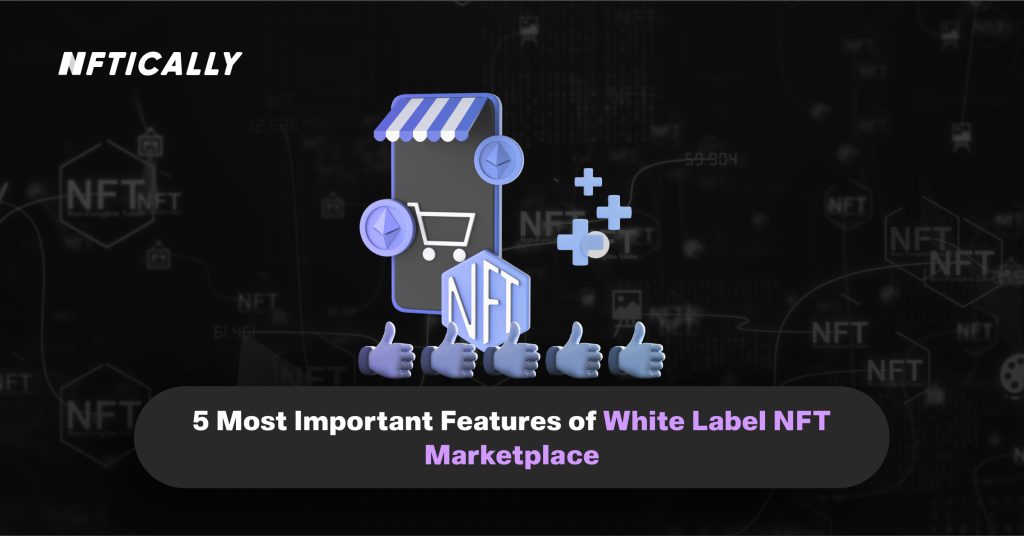
White Label NFT Marketplace
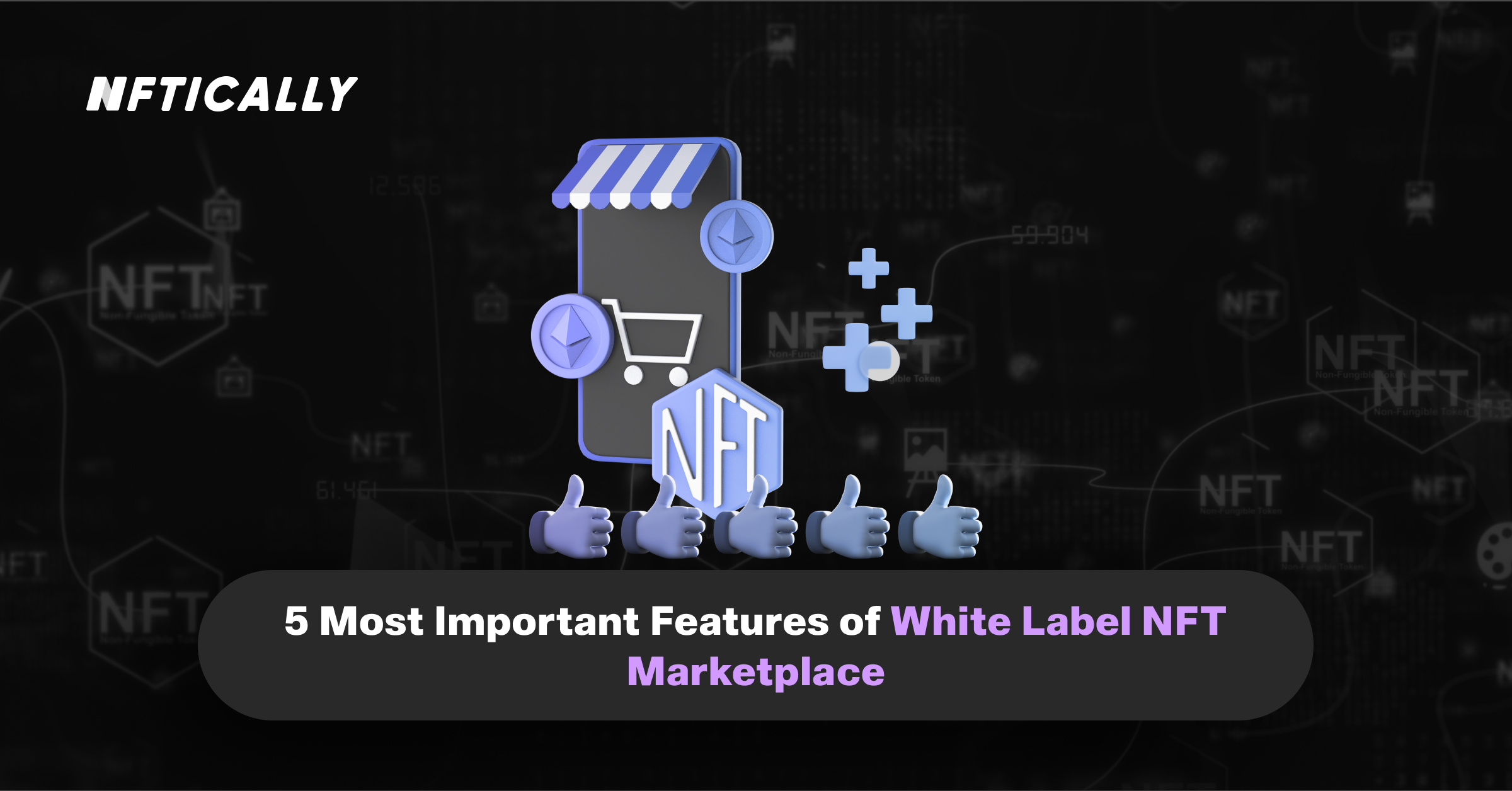
To buy, sell, and bid NFTs in the form of digital collectables, the White Label NFT Marketplace is a ready-to-deploy platform that has tested and shown to work.
With the White label NFT marketplace, you may easily trade NFTs thanks to cutting-edge blockchain technology. To establish an NFT Marketplace, the most popular blockchain networks include Ethereum, Binance Smart Chain, Solana, Polygon, Avalance, Cardano, and so on.
NFT Marketplaces allow users to trade NFTs of many types, including art, photography, music, movies, memes, metaverse, game components, and more. White label NFT Marketplaces provide same function. Many enterprises use White label NFT Marketplace instead of establishing their own NFT Marketplace platform.
The advantages and features of a White Label NFT Marketplace over a custom NFT platform development make it a better choice. NFT marketplace creation from scratch takes longer and costs more money than launching a white label NFT marketplace. The launch of a Whitelabel NFT Marketplace will assist the platform owners in running a lucrative NFT company in a short period quickly.
White label NFT Marketplace: 5 features
1. White label NFT Minting
To create digital collectables like NFTs, the quickest and simplest method is to use white label NFT minting. In other words, White label NFT mininting is the process of duplicating already existing digital assets. New NFTs are produced by using blockchain-based NFT minting Smarts contracts. People who wish to mint their digital assets may use NFTICALLY’s White-labeled NFT minting platform, which is straightforward.
2. White label NFT Staking
The white label NFT staking is a brand-new method of generating cryptocurrency revenue via staked NFTs. Locking assets on DeFi systems allows NFT holders to obtain benefits. They can all keep their NFT collections without having to sell them.
Proof of Stake (PoS) rewards participants in NFT staking such as DeFi yield farming. Locking up NFTs allows users to get rewards depending on the annual percentage yield (APY) of their staked NFTs.
Due to the decreased overall supply, NFT staking might benefit investors individually. Nonetheless, in the larger scheme of things, NFT staking opens up new applications for NFTs that go well beyond the concept of just collecting digital artworks.
3. Lazy Minting
NFTICALLY and other markets have adopted “lazy minting” to decrease the barrier to entry for NFT developers by allowing them to manufacture NFTs without incurring any upfront expenditures.
In addition, NFT creators use their Ethereum account’s private key to create cryptographic signatures of specific data instead of directly executing a contract function to create an NFT.
The signed data serves as a “voucher” or “ticket” for an NFT. Therefore, Vouchers may include extra data not stored on the blockchain but in the real NFT.
4. IPFS-NFT storage
NFTs, or non-fungible tokens, are well-suited to IPFS’s storage and addressing capabilities. IPFS data storage for NFTs is the focus so that both NFT authors and NFT owners may have a long-lasting experience.
IPFS NFT storage may store off-chain NFT data (such as metadata, photos, and other assets) on NFT. Hold for up to 31GB per upload. IPFS content addresses are unique to each piece of data. Hence the URI referring to a part of data is “ipfs:/..” (using a content identifier, or CID). To guarantee that the NFT constantly refers to the correct material, IPFS URLs and CIDs may be used in NFTs and metadata (eliminating rug pulls and making it verifiable what content an NFT is associated with).
Filecoin and NFT storage’s specialized IPFS servers keep several copies of the uploaded data. NFT storage networks are often used to keep the data mainly. You may store NFT storage data on any other IPFS-compatible storage solution, from pinning services to your own IPFS node to additional storage networks like Arweave or Storj, since IPFS is a standard utilized by many different storage services. NFT. Storage will become more and more decentralized as time goes on!
5. Multichain-compatibility
For cryptocurrencies and non-fungible tokens, Multichain acts as a link between different blockchains. Multichain, formerly known as Anyswap, is a platform that enables users to exchange tokens or liquidity in a decentralized manner. The Router on Multichain will figure out the optimal way to bridge your selected currency.
Using liquidity pools, Multichain will transfer cryptocurrencies across various chains for coins with native tokens. There is no native currency for Multichain. Thus it locks up the tokens and mints a pegged token on the target chain if there is one.
Wrapping-up
A variety of business models are emerging in the digital world as more and more entrepreneurs go into the crypto space. Now, the NFT marketplaces with cutting-edge concepts are attracting the most investors’ interest.
NFT markets have piqued the curiosity of many businesspeople who had previously avoided the crypto sphere. Numerous white-label NFT marketplaces have been built to fulfil the market needs as many NFT marketplaces have been launched in the digital world.
With NFTICALLY, a Global B2B SaaS, you may create your own white-label NFT firm or NFT Marketplace without prior technical knowledge.
In our development centre, you may see your requirements come to life right before you. Meet with our project manager, engineers, and designers to review your platform.
You may find the answer to any questions about NFT by visiting our FAQ or joining our Discord or Telegram channels.


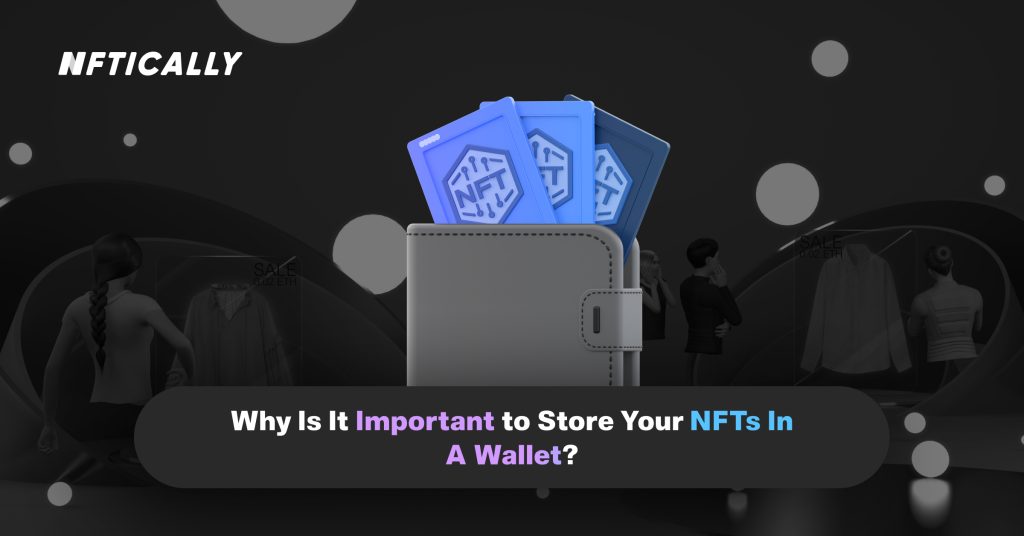
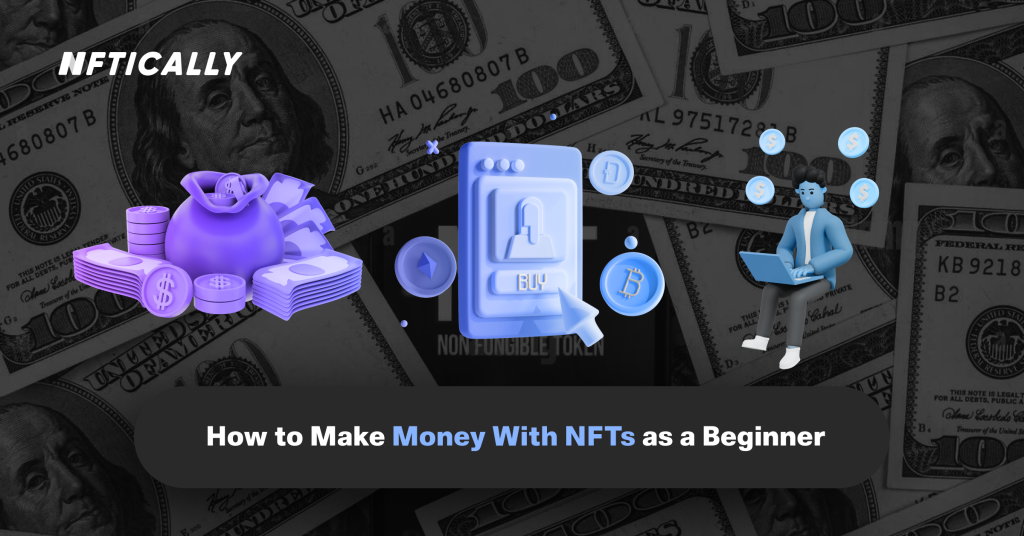
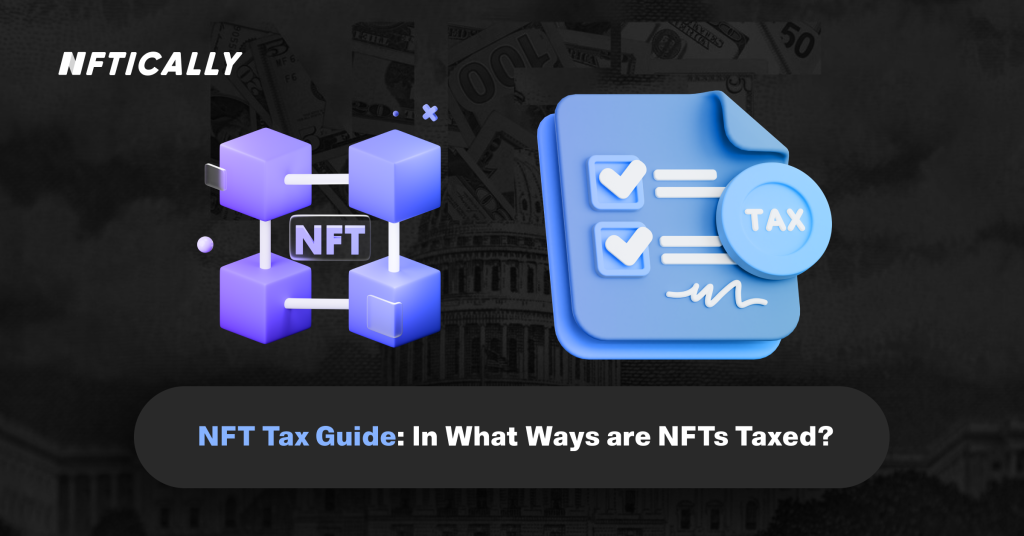
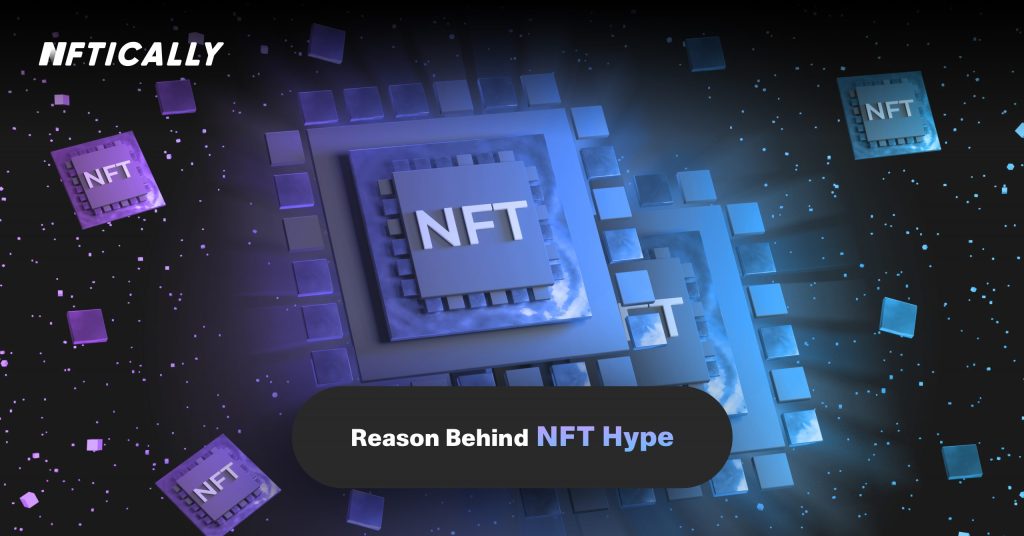
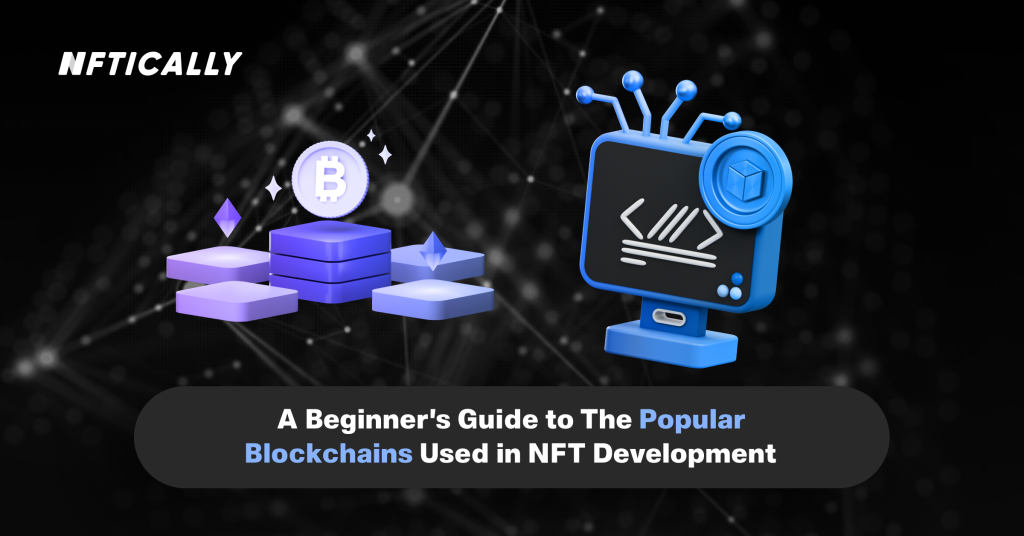
[…] of its potential impact on the digital world, you’ve probably heard of NFTs before. Non-fungible tokens may be used to create a sense of scarcity around digital assets. It’s […]